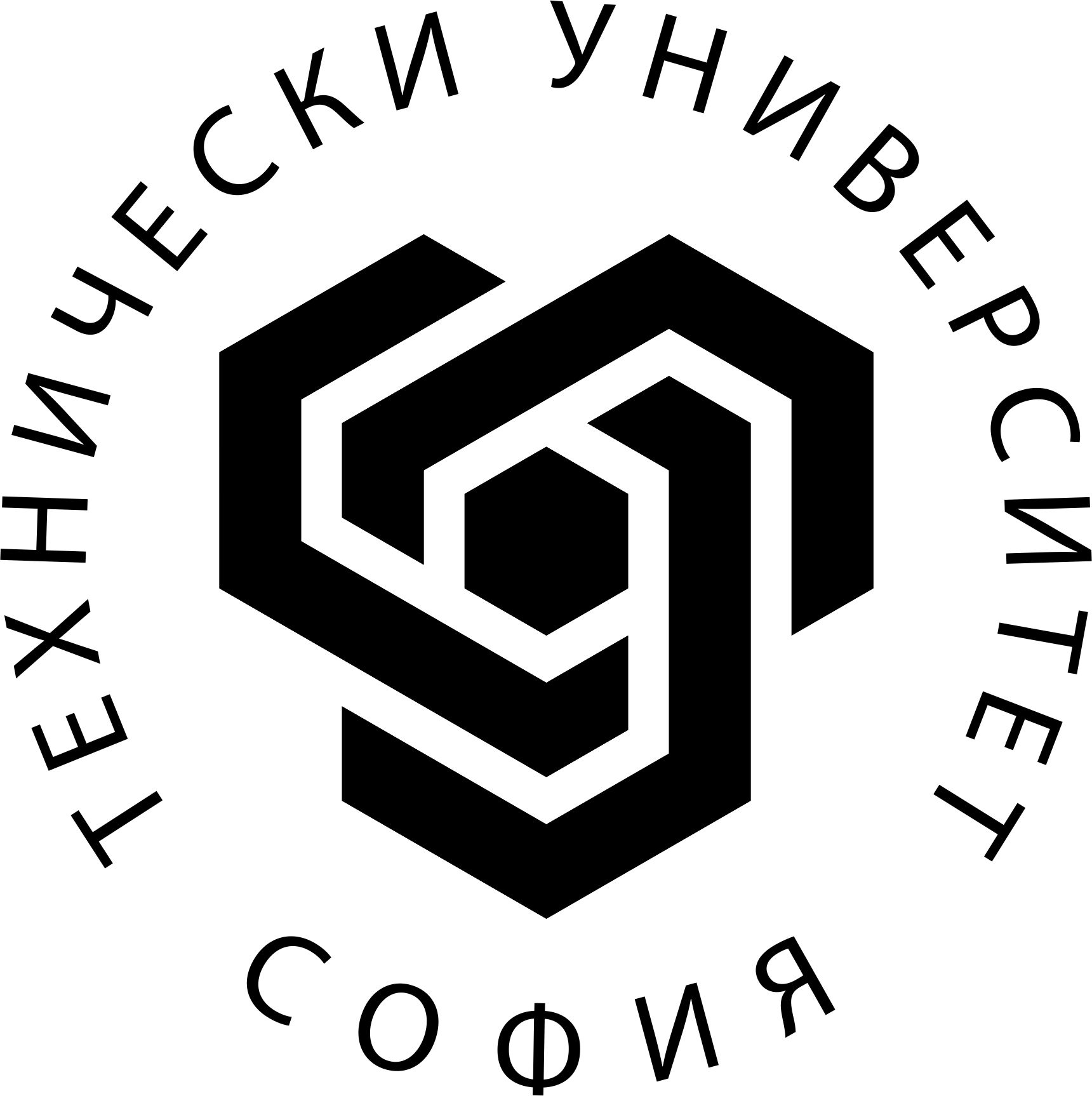 | INTERNATIONAL CONFERENCE AUTOMATICS'20222 - 5 June 2022 |  |
|---|
HOME
Registration
Login
Accompanying events
Author's kit and instructions
Plenary speakers
Conference fee
Deadlines
Organizers
Instructions for reviewers
Program
Venue
Abstracts
Papers
Contacts
Gallery
Downloads
Indexing
Videos
Past events
Discrete Wiener filter Application in Wind turbine control
O. Ognyanova1, T. Puleva2, E. Haralanova3
1 PhD student
2 Assoc. Professor
3 Technical Universityy of Sofia
Discrete stochastic control algorithms for wind turbine generators based on Wiener filter theory are explored in this paper. This approach is very effective in operation in a tracking regime. A discrete controller is designed by taking into attention functional and magnitude constraints. The application of Wiener filter design permits to extend the problems range: extrapolation of the input signal and controller direct design based on Diophantine equation instead of functional constraints in the classical design method. This approach simplifies the design procedure. The frequency characteristics of the optimal system and of the controller by variable wind speed are analyzed. The system performance is investigated in the frequency domain as well as by the error standard deviation under variable wind speed.
Session Information measurement technology
System for monitoring and analysis of environmental data
B. Dzhudzhev1, N. Stoyanov1, S. Vladov1, A. Pandelova2
1 TU-Sofia, Electrical Measurememt Systems Department, FA
2 Technical University of Sofia
Most of the employees in the office have no idea what health risks the work environment hides for them. It is important to maintain a healthy working environment in the office, as this can reduce the absence of sick staff and their good tonus can be maintained.
An environmental data monitoring and analysis system has been developed, which includes a particulate matter sensor, a light sensor and a temperature sensor. The system includes three main units - sensor part with three different sensors, Arduino Nano sensor communication platform and web server for communication with which the Linux operating system is used. The necessary settings have been made for reading data from the sensors, converting them into digital form, storing them in a database and graphical visualization of the measured values. When visualizing the measurements, the period of visualization can be chosen - from the last hour to one year ago. The developed system has been tested for monitoring the environment of a real object.
Session Control systems engineering
Pade series approximation of static nondifferentiable nonlinearities
K. Perev
Technical University of Sofia
The paper considers the problem of smooth function approximation of certain nondifferentiable nonlinear characteristics by applying Pade series. Unified approach for this approximation is presented, which is based on using the ideal relay characteristic to describe the nonlinear effect of the approximated nonlinearity. The ideal relay serves as a switching device to carry out changes in the nonlinear element behavior. The main idea of the presented approach is to transform the problem of smooth function approximation of certain nonlinear characteristics to the problem of smooth function approximation of the ideal relay characteristic. The jumping in the relay behavior is replaced by parameterized hyperbolic tangent function, which on its own turn is described in terms of an exponential function. Furthermore, Pade series is used to approximate the exponential function in the hyperbolic tangent expression. Some popular nonlinear characteristics are considered and the approximation mechanism is explained by considering different ranges of operation for the input argument. The approximation power is increased by using parametrization of the hyperbolic tangent function.
Session Control systems engineering
Robust PID design for a servosystem using mu synthesis in MATLAB
A. Markovski
Technical University of Sofia
Robust PID design via μ synthesis for a laboratory model of a servo system manufactured by Inteco is done. The main goal is to demonstrate the new potentials of the Robust Control Toolbox for MATLAB for tuning fixed structure controllers for objects with an uncertainty. Some of the model parameters are modelled with a structured uncertainty. Additionally, unstructured uncertainty is introduced due to the presence of nonlinearity of gap type. Simulation experiments are performed with the model. The operability of the created regulator is tested on the experimental installation.
Session Control systems engineering
Electroplating plant control system
G. Ruzhekov
TU-Sofia
Electroplating is a process that produce a metal coating on solid material trough the reduction of cations of that metal using direct electric current. The part to be coated acts cathode of an electrolytic cell, the electrolyte is a solution of a salt of the material to be coated and the anode is inert conductive material. An external power source is used to operate this installation.
Session Control systems engineering
Modeling And Control of Rectification Column
A. Kula, A. Georgieva, G. Ruzhekov
TU-Sofia
Multidisciplinary system is being created for modelling and control of rectification process by desired product. The plant is realized in MATLAB. For this purpose, is created software in AppDesigner. The control system uses an industrial controller and SCADA system. Communication between the two products (MATLAB and PLC/SCADA) is created through industrial protocol – MODBUS.
Session Control systems engineering
Design and investigation of adaptive fuzzy level control system for carbonisation column
M. Slavov
Solvay Sodi SA, Devnia, Bulgaria
The aim of this research is the design of PID Sugeno fuzzy logic controller (FLC) for the control of level in carbonisation column for the production of soda ash, without using a model of the process and with online fuzzy adaptation of its parameters. The controller is developed on the basis of a PD FLC with inputs the system error and its derivative, a parallel integrator of error and a Sugeno module for online tuning of the parameters according to the measured level or its reference. The adaptive FLC is implemented in a programmable logic controller for real time control. The closed loop system is investigated by experiments in industrial environment and an operating carbonisation column. The designed system reduces the mean squared error and the control variance. It also compensates the industrial disturbances and the changes in the process, and prolongs the life of the final control elements.
Session Control systems engineering
Session Theoretical electrical engineering
A modified metal-oxide memristor model for reconfigurable filters
I. Zaykov
Technical University of Sofia
Memristor elements are innovative and nano-dimension electronic nonlinear two-terminal components with memory effect, and have potential application in various electronic circuits, like memory devices, neural nets, digital and analog reconfigurable schemes, which engineering involves accurate and simplified models. In this work, a modified and better-quality model for metal oxide-based memristor elements is presented, to be applied for primary design of memristor-based analog filters. The presented memristor model has a high correctness, simple mathematical equations and sensitivity thresholds. Its LTSPICE library model is created and used for investigations of low-pass and high-pass analog filters. The offered memristor model suitably represents the nonlinear dopant motion. The corresponding voltage-current and state-flux relations are analyzed for both hard-switching and soft-switching regimes. The conducted analyses and computer simulations approve its proper operation in electronic devices, expressing the basic and important fingerprints of memristor components.
Session Theoretical electrical engineering
A Metal Oxide Memristor-Based Oscillators and Filters
I. Zaykov, S. Kirilov
Technical University of Sofia
Memristors are novel and nano-sized electronic passive elements with memorizing properties, potentially applicable in different electronic schemes, as neural networks, memory circuits, analog and digital devices, which design requires precise and simple models. In this paper, a modified and improved model of metal oxide memristors is proposed, in order to be used for preliminary engineering of memristor-based generators, filters and other electronic circuits. The offered model has a high accuracy, simplified math expressions and includes activation thresholds as well. Its corresponding LTSPICE library model is generated and applied for analysis of oscillators, low-pass and high-pass filters. The suggested model correctly expresses the nonlinear ionic dopant drift. The basic current-voltage and state-flux relationships are analyzed for both soft-switching and hard-switching modes. The conducted analyses and simulations confirm its correct operation in electronic circuits, representing the main fingerprints of memristor elements.
Last changed on 19.05.2022, 12:18:39
This page will be accessible until 01.12.2045